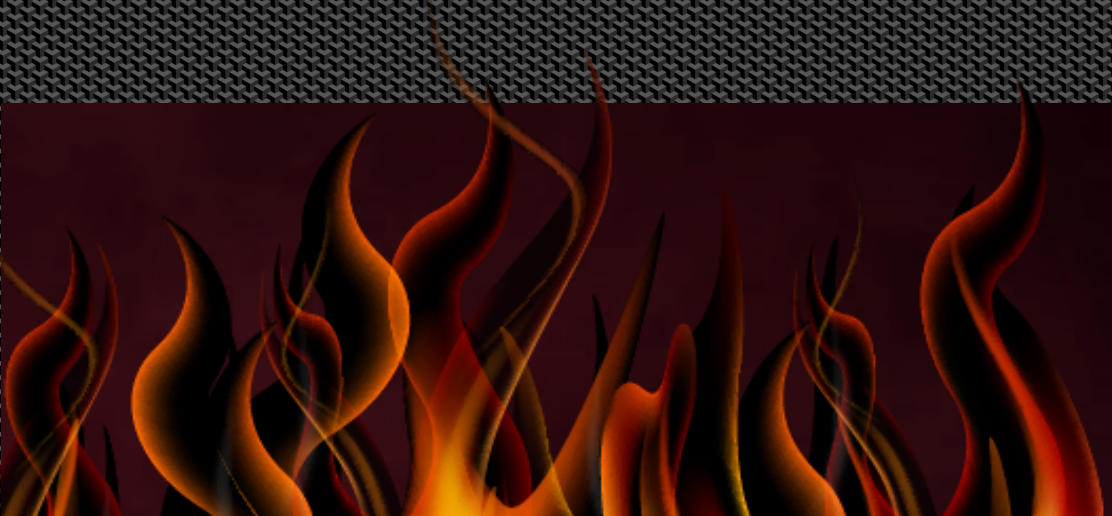



"When a man's stomach is full
it makes no difference whether he is rich or poor."
Euripides (BC 480 - 406 Greek Tragic Poet)
Grizzlys BBQ
Although
trimmed
Flats
can
be
cooked
in
a
slow
cooker
or
braised
in
a
large
dutch
oven,
whole
Packers
are
almost
always
cooked
on
a
grill
or
smoker.
If
cooking
on
a
grill
over
direct
heat
(the
heat
source
directly
under
the
meat)
the
meat
should
be
placed
fat
side
down,
grill
covered
and
temperature
no
more then 250F.
Trimming
-
The
particular
piece
of
meat
you
pick
out
will
dictate
how
much
trimming
is
needed.
A
whole
untrimmed
packer
will
need
much
more
then
say
a
Flat.
I
myself
would
rather
have
a
little
more
fat
during
the
cook
and
trim
it
off
afterwards.
You
should
always
leave
at
least
1/4”
to
1/2”
of
the
fat
cap
in
place.
I
generally
don’t
mess
with
the
cap.
On
the
other
side
you
often
have
a
thick
“corner”
of
fat
that
runs
from
the
point
to
about
halfway
down
the
Flat,
this
should
be
trimmed
way
down
but
NOT
removed.
Cooking
-
I
prefer
to
smoke
my
packers
using
indirect
heat.
Using
a
smoker
with
an
offset
firebox
or
a
vertical
smoker
with
a
heat
deflector,
the
meat
is
placed
fat
side
up
in
the
center
of
the
cooking
grate.
At
this
point
you
can
do
either
a
“Hot
&
Fast”
or
“Low
& Slow” cook.
Once
the
meat
has
been
on
smoke
for
at
least
4-5
hours,
it
can
then
placed
in
a
disposable
aluminum
roasting
pan,
to
catch
any
additional
juices
which
will
be
used
later.
I
then
cover
and
tightly
seal
the
pan
with
aluminum
foil.
(Although
foiling
is
not
required,
I
do
it
to
help
keep
the
Flat
from
drying
out
while
the
thicker
Point
is
coming
up
to
temp.
This
is
especially
true
during
“Hot
&
Fast”
cooking).
Continue
cooking
either
in
the
smoker,
grill
or
even
in
your
oven
until
the
meat
reaches
an
internal
temperature of between 195F and 200F. Then perform a “Poke Test”
***The
Poke
Test
-
This
is
the
best
method
to
determine
whether
the
meat
is
done.
Taking
a
thin
probe,
such
as
the
temperature
probe
of
a
digital
thermometer,
insert
it
into
the
meat...if
it
goes
in
like
it
is
going
through
melted
butter,
then
its
done.
If
not,
continue cooking and check every 10 minutes.
Temperature
Plateau
-
While
cooking,
a
brisket
will
tend
to
reach
a
temperature
“Plateau”.
This
is
the
point
where
the
internal
temperature
will
just
stop
rising,
sometimes
for
up
to
a
couple
of
hours.
This
is
NOT
unusual
and
its
believed
that
this
has
something
to
do
with
the
amount
of
moisture
in
the
meat
and
the
conversion
of
collagen
to
gelatin.
Be
patient,
the
temperature
will eventually begin rising again.
Resting
-
No
matter
what
method
you
use,
after
cooking,
always
remember
to
cover
your
meat
with
foil
and
allowed
to
“rest”
for
at least 30 minutes to allow all those flavorful juices to redistribute throughout the meat.
Slicing
Brisket
-
Once
the
brisket
is
cooked
I
recommend
that
you
separate
the
Flat
from
the
Point
before
slicing.
This
can
be
easily
done
while
the
meat
is
still
warm
by
taking
a
butter
knife
and
inserting
it
into
the
fat
vein
which
separates
the
Point
and
Flat.
Then
carefully
work
the
blade
between
the
two
muscles
while
at
the
same
time
lifting
the
Flat
away
from
the
Point.
If
the
meat is too hot to handle, use a pair of tongs to lift the Flat.
Once
separated
slice
the
Flat
AGAINST
the
grain.
Since
the
grain
of
the
Point
is
so
different,
try
to
slice
it
against
the
grain
or
simply chop it for chopped beef sandwiches or cut it into cubes for Burnt Ends.
Alternatively,
some
people
simply
leave
the
packer
Brisket
whole
and
slice
it
against
the
grain
of
the
Flat
all
the
way
down
through the Point, thus giving each slice a little of the Flat and a little of the Point.
Burnt Ends
Burnt
Ends
are
simply
little
chunks
of
Heaven.
Cubes
of
cooked
brisket
which
have
been
sauced
and
cooked
a
little
longer…rendering
out
more
of
that
fat
and
caramelizing
the
delicious
BBQ
sauce
to
create
those
little
nuggets
of
goodness.
These
will
disappear
long
before everything else.
Once
your
brisket
has
cooked.
I
take
the
meat
of
the
point
(which
is
fattier
then
the
Flat)
cut
it
into
cubes,
sauce
it
up
and
place
it
in
a
tray.
I
will
continue
to
slow
cook
them
(indirect
heat)
allowing
the
fat
to
render
down
even
more.
Before
long
you
will
have
some delicious perfectly rendered chunks of beefy delight.

Brisket 102

__
Grizzlys BBQ





"When a man's stomach is full
it makes no difference whether he is rich or poor."
Euripides (BC 480 - 406 Greek Tragic Poet)

Grizzlys BBQ
Temperature
Plateau
-
While
cooking,
a
brisket
will
tend
to
reach
a
temperature
“Plateau”.
This
is
the
point
where
the
internal
temperature
will
just
stop
rising,
sometimes
for
up
to
a
couple
of
hours.
This
is
NOT
unusual
and
its
believed
that
this
has
something
to
do
with
the
amount
of
moisture
in
the
meat
and
the
conversion
of
collagen
to
gelatin.
Be
patient,
the
temperature
will
eventually
begin
rising
again.
Resting
-
No
matter
what
method
you
use,
after
cooking,
always
remember
to
cover
your
meat
with
foil
and
allowed
to
“rest”
for
at
least
30
minutes
to
allow
all
those
flavorful
juices
to
redistribute
throughout the meat.
Slicing
Brisket
-
Once
the
brisket
is
cooked
I
recommend
that
you
separate
the
Flat
from
the
Point
before
slicing.
This
can
be
easily
done
while
the
meat
is
still
warm
by
taking
a
butter
knife
and
inserting
it
into
the
fat
vein
which
separates
the
Point
and
Flat.
Then
carefully
work
the
blade
between
the
two
muscles
while
at
the
same
time
lifting
the
Flat
away
from
the
Point.
If
the
meat
is
too
hot
to
handle,
use
a
pair of tongs to lift the Flat.
Once
separated
slice
the
Flat
AGAINST
the
grain.
Since
the
grain
of
the
Point
is
so
different,
try
to
slice
it
against
the
grain
or
simply
chop
it
for
chopped
beef
sandwiches or cut it into cubes for Burnt Ends.
Alternatively,
some
people
simply
leave
the
packer
Brisket
whole
and
slice
it
against
the
grain
of
the
Flat
all
the
way
down
through
the
Point,
thus
giving
each
slice a little of the Flat and a little of the Point.
Burnt Ends
Burnt
Ends
are
simply
little
chunks
of
Heaven.
Cubes
of
cooked
brisket
which
have
been
sauced
and
cooked
a
little
longer…rendering
out
more
of
that
fat
and
caramelizing
the
delicious
BBQ
sauce
to
create
those
little
nuggets
of
goodness.
These will disappear long before everything else.
Once
your
brisket
has
cooked.
I
take
the
meat
of
the
point
(which
is
fattier
then
the
Flat)
cut
it
into
cubes,
sauce
it
up
and
place
it
in
a
tray.
I
will
continue
to
slow
cook
them
(indirect
heat)
allowing
the
fat
to
render
down
even
more.
Before
long
you
will
have
some
delicious
perfectly
rendered
chunks
of
beefy
delight.

Brisket 102 |
continued
__
Grizzlys BBQ





























